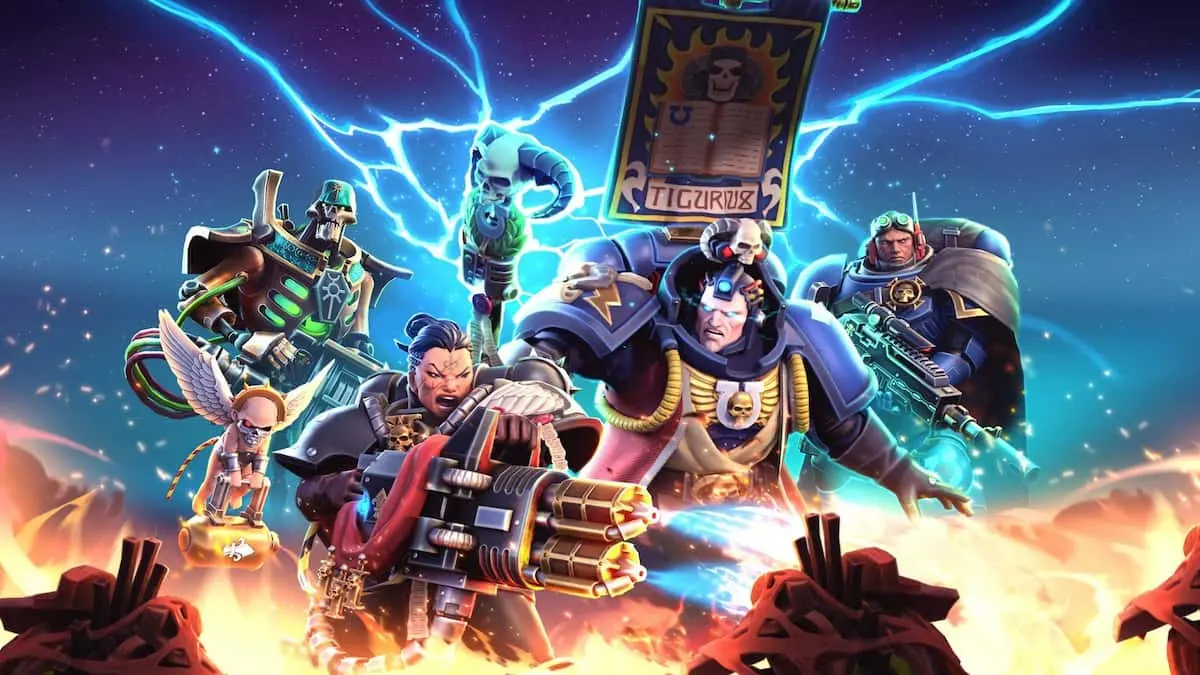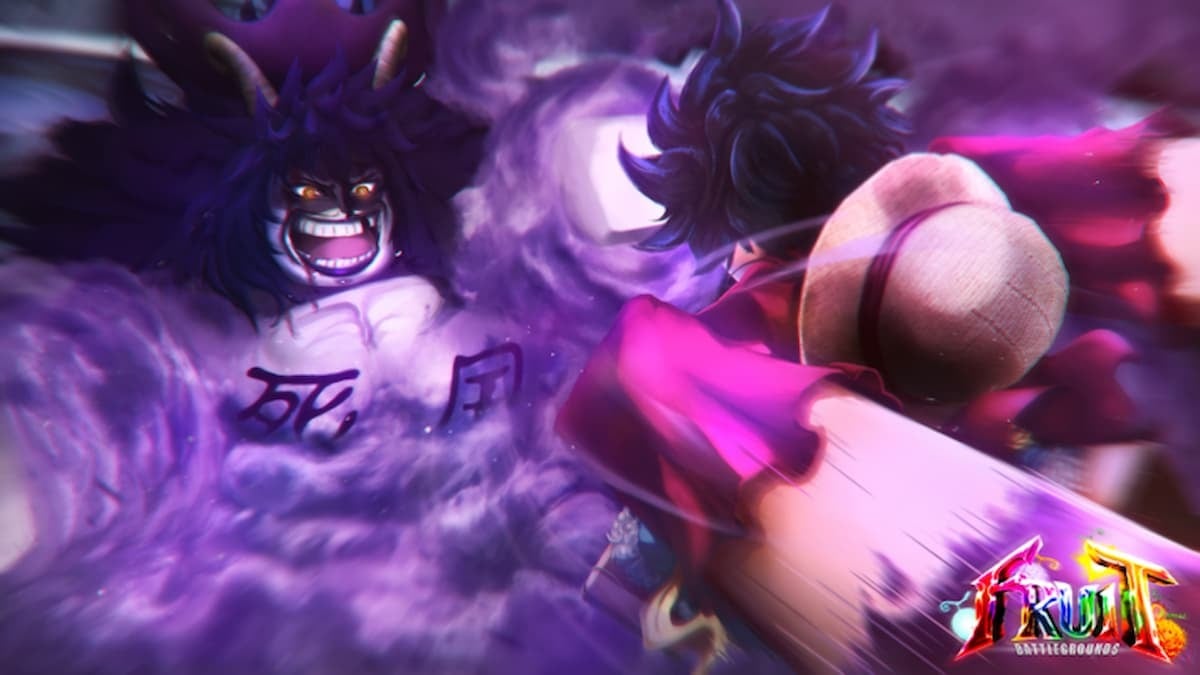Guild Wars 2‘s first expansion, Heart of Thorns, is finally here, and every class now has access to a more advanced elite specialization that adds a new weapon, changes or adds on to the existing class mechanic, and grants access to a new set of skills. Not all of these are created equal, however, so here’s a quick rundown of what each elite specialization has to offer so you can figure out where to spend your time and energy.
Tempest (Elementalist)
Weapon: Warhorn
Mechanic: Overload
Skills: Shouts
The new elementalist Elite Spec adds the Warhorn to their arsenal, gives them access to shouts, and adds the Overload mechanic, which allows elementalists to re-cast their attunement for an extra-powerful effect that increases the recharge of the attunement after swapping.
The Tempest is in an interesting spot – it’s definitely not a straight upgrade or a no-brainer like some of the other elite specializations, in no small part because it’s hard to justify swapping out another elementalist trait line. That being said, the Tempest is an interesting choice because it radically changes the way the elementalist is played – the Overload mechanic runs counter to the fast-paced, rapid attunement swapping that is popular with most elementalist specs. Playing the Tempest well relies less on APM and more on good decision making.
It’s not notably more powerful than the base elementalist, but the Tempest offers strong AoE, some very good group support in the form of speed boosts, fields, and heals, and some impressive burst damage. You’re most likely to get use out of the Tempest in sPvP and open world play.
Scrapper (Engineer)
Weapon: Hammer
Mechanic: Gyros
Skills: Gyros
The Scrapper doesn’t really revolutionize the engineer, but it does offer some pretty interesting options to the class. The Gyros have a lot of potential, especially the Function Gyro, and the hammer is the engineer’s only melee option (if you don’t count the tool kit).
Running with the hammer gives you even more defensive options on top of the great ones the engineer already has, including a block and projectile deflection, and has potential synergy with a lot of different kits, especially the flamethrower. The Gyros also offer some totally unique options, like stealth and the ability to res or stomp someone at range, but they currently suffer from the same AI issues as ranger pets and necro minions.
The Scrapper specialization probably has the most application in WvW and sPvP right now, but people are still experimenting with builds and it may very well see some use in PvE as well, especially with improvements to the Gyros.
Dragon Hunter (Guardian)
Weapon: Bow
Mechanic: Alternative Virtues
Skills: Traps
The guardian’s elite specialization has received a lot of bad press, and not just because of the awkward name, but at the time of Heart of Thorn’s release, it’s in a pretty good place. It adds a very useful ranged option to the guardian’s arsenal and provides some interesting utility.
That being said, it doesn’t really do anything that the guardian doesn’t already do, and the Dragon Hunter doesn’t really play well with the guardian’s other abilities. The traps, while good, don’t mesh well with a ranged playstyle and can be hard to activate, and the new Virtues, while strong, are not necessarily better than the base version.
In PvE, the Dragon Hunter can actually deal out some impressive damage, and trap guardians have proven to be competitive in sPvP, but the new elite specialization doesn’t outshine the base guardian in any particular area. This is probably a good thing, since players that want a better ranged option and a different style of play can choose the Dragon Hunter and fans of the original guardian won’t feel compelled to switch.
Chronomancer (Mesmer)
Weapon: Shield
Mechanic: Continuum Shift/Split
Skills: Wells
Even though they only received an offhand weapon, the mesmer actually got a lot of cool new toys with the Chronomancer. The Chronomancer has some of the best tools for inflicting slow and granting quickness and can provide a new effect, Alacrity, that lowers cooldowns, giving an already utility-heavy class even more options.
Switching over to the Chronomancer is kind of a no-brainer for most PvE mesmers, even though it can difficult to figure out which trait line to cut, mainly because of the ability to re-cast abilities with Continuum Split. Clever use of this ability can allow the Mesmer to give their group huge quickness and alacrity uptime and let them inflict almost perma-slow on foes. The utility of Continuum Shift is incredible, and there are no doubt plenty of combos yet to be discovered.
The shield is more defensive than the Mesmer’s other off-hand options, but it’s still a strong choice even if you sacrifice a little DPS – with the evade from your mainhand sword, and the block offered by the shield, Mesmers are almost untouchable in PvE and significantly less vulnerable in PvP.
Reaper (Necromancer)
Weapon: Greatsword
Mechanic: Reaper’s Shroud
Skills: Shouts
The Reaper has gotten a lot of praise from the community, and for good reason – it’s a well-designed and extremely thematic specialization that doesn’t break the rest of the profession. Playing a Reaper feels distinctly different from playing a base Necromancer in a very good way.
The new greatsword skills and the Reaper’s Shroud abilities are slow and powerful, but not noticeably higher DPS than what the necromancer already has. What the Reaper does offer is extremely high crit chance, good might and chill uptime, and some powerful self-heals. The Reaper is still a fairly selfish PvE class, but with built-in cleave, vulnerability, and solid debuffs, it’s no longer a liability in dungeons or fractals.
As fun as the greatsword is, the long animations of the Reaper make it somewhat less effective in PvP, though if you manage to land your skills you can spike someone down in no time flat. It’s pretty clear though that the Reaper is meant to alleviate some of the Necromancer’s PvE woes, and it absolutely manages to do so.
Druid (Ranger)

Weapon: Staff
Mechanic: Celestial Avatar
Skills: Glyphs
The Druid is the probably the elite specialization with the most focus and the clearest design goal – it turns the Ranger into the best healer in the game, hands down. The healing power ratios probably still need some tweaking, but even so, the utility and raw healing potential of the Druid is unparalleled.
There are a couple of problems with this – first, healing isn’t nearly as useful as avoidance in Guild Wars 2, though this may change with the introduction of raids, and second, dedicated healing doesn’t work especially well with the Ranger’s other strengths.
Still, the Druid is well-developed and useful specialization, and if you’ve been hankering to play a dedicated support character, it’s extremely good at what it does, offering burst healing, condition removal, and healing over time. The Druid doesn’t deal much damage, but it’s not something you can ignore, so it’s definitely useful in both PvE and sPvP, though we’ll have to wait for raids to know just how necessary the Druid actually is.
Herald (Revenant)
Weapon: Shield
Mechanic: Legendary Dragon Stance
Skills: Facets
The Herald is in an interesting place because the Revenant doesn’t have an established role in the meta or any player experience to work with – it’s not trying to shake anything up, nor does it need to.
Unfortunately (or fortunately, depending on your point of view), the Herald seems to be just a flat upgrade to the base class, and there’s not any compelling reason not to run it. Offering might stacking, tons of boons, damage, and utility, the Legendary Dragon stance is so strong that most Heralds are going to choose to stay in that as much as possible. This isn’t necessarily a problem, it just lowers build diversity for Revenants.
The Herald definitely has a bit more applicability in PvE, but there are potential uses in every game mode. It’s that powerful.
Daredevil (Thief)
Weapon: Staff
Mechanic: Additional dodge
Skills: Physical
The Daredevil specialization suffers somewhat for poor execution — a lot of people are and were very excited about the idea of a mobile, staff-using ninja, but actual Daredevil gameplay tends to be a little clunky and unintuitive.
With that in mind, there are definitely some cool toys for the Thief to play with here — a third dodge, some excellent mobility, and solid burst damage are just some of the things that the Daredevil has to offer. It is one of the more defensive Thief specializations out there, and doesn’t sacrifice a ton of DPS to get there.
Still, thieves aren’t really hurting for dodges or evades, and they hardly need another DPS spec, so the biggest issue with the Daredevil is what to replace or why to take it over an established build. Perhaps with time a more solid role for the elite will shake out, but for now it’s not proving to be very useful.
Berserker (Warrior)
Weapon: Torch
Mechanic: Rage
Skills: Rage
The Berserker brings a lot of interesting things to the table, but the Warrior was in a good place before Heart of Thorns, so people are having trouble figuring out what to sacrifice for the new elite spec.
Some of the unique and interesting things that the Berserker offers are a mobile fire field, an extremely long stun, and some new ways to apply condition damage. Might stacking, pressure, and high-intensity play are the hallmarks of the Berserker.
Some interesting builds are emerging for sPvP and WvW, but it will be some time before we know for sure what the real potential of this specialization is.















Published: Oct 31, 2015 04:12 pm